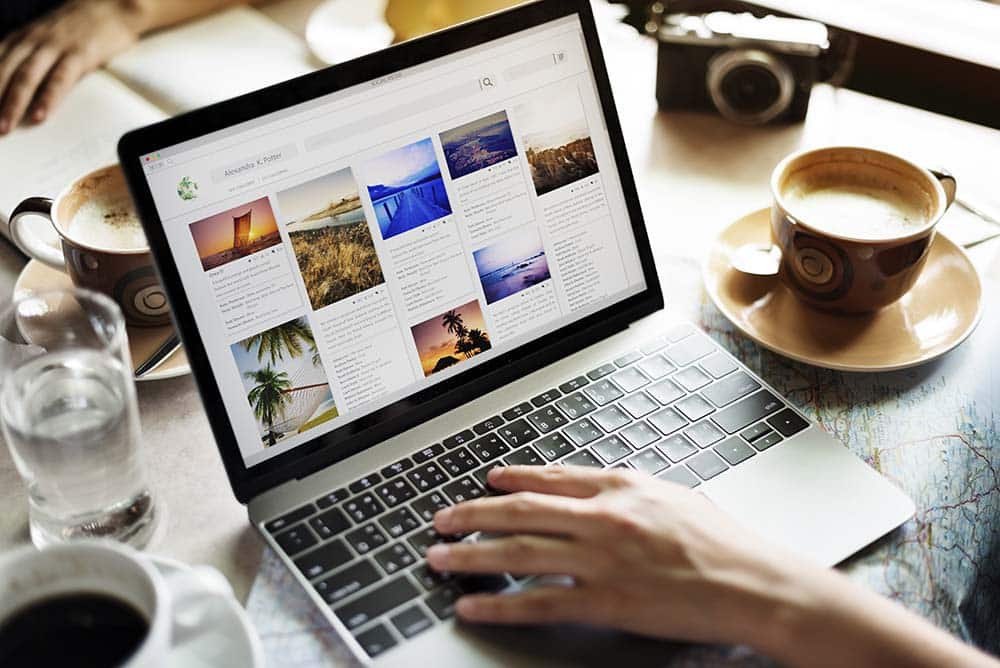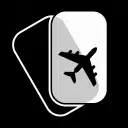Travel Booking Data Points for 2024
The process of online travel booking has moved firmly into the 21st century. The estimated worth of online bookings between 2023 and 2030 is over $1,500 billion. Considering that the tourism industry is worth approximately $2.29 trillion, online bookings represent one of the largest market shares in the sector.
Digital consumer trends continue to change. Desktop use is continuously dropping, and mobile is king. However, even these trends continue to shift rapidly, so the travel industry must adapt accordingly.
While many customers get their information via mobile, they still move to desktop when making their bookings. Not only is this inconvenient for the customer, but it makes no sense from a travel company perspective either.
Understanding the latest travel booking data is the key to understanding how customers are interacting with travel companies and what improvements you should make in the near future. By paying close attention, you can adapt your sales funnel to make booking a trip as easy and convenient as possible.
Before we break down the nitty-gritty, here are the most important online travel booking statistics you need to know:
- In 2023, flight bookings reached nearly 95% of what they were before the coronavirus pandemic.
- The online travel market is expected to reach $1.2 trillion by 2027.
- 80% of travelers worldwide prefer to book their entire trip online.
- Half of all travelers spend less than a week researching their vacations before heading out.
- 75% of travelers in 2023 credited social media posts for inspiring their travel destinations.
- 87% of travelers express a desire for eco-friendly travel options.
- 76% of all tourism and travel revenue is projected to come from online bookings by 2028.
Online Travel Industry Statistics
What Percentage of Travel Bookings Is Made Online?
In 2022, 68% of travel and tourism sales happened online, bringing in $667.55 billion in revenue by 2023. And it’s not stopping there – experts predict the online travel industry will keep growing at a compound annual growth rate of 12.99%.
According to Travel Perk, the most popular day for bookings is Monday, and Saturday is the least popular. Smart agencies can plan their server usage accordingly.
The online travel booking segment is one of the largest in the travel industry. The travel industry is estimated to be worth around $900 billion in 2024. By 2028, 76% of all travel and tourism revenue is expected to come from online sales. Current projections estimate that that market will grow every year at a rate of 3.47%, reaching an estimated worth of $1,063 billion by 2028.
How Are Consumers Using Online Travel Booking Services?
The biggest shift in online booking trends towards last-minute bookings. According to Google statistics, travel-related searches with the keywords ‘tonight’ and ‘today’ have increased in the past five years. Many of these searches originated on mobile devices in the destination city.
Also, more and more people are booking hotels on their phones instead of computers. In fact, about 35% of all travel bookings are now done on mobile devices. This is a big jump from just a few years ago.
While sites like Booking.com and TripAdvisor get millions of visits per month, 27% of online travel booking sales are made directly from the hotel’s own website.
The travel sector, in general, struggles with converting leads. Online travel sites have the highest cart abandonment rate of any sector, and the total online travel spending makes up a small fraction of the overall internet spending.
As more companies become smart about customer experience, many travelers now have higher expectations when it comes to bookings.
In 2022, travelers relied heavily on eye-catching videos and photos to pick their destinations. Beyond the location itself, seeing a hotel’s amenities and guest experiences in action through visuals was crucial for making a decision.
On the flip side, some things could really turn travelers away. Bland hotel rooms with bad photos, unappetizing food pictures, and boring presentations were big turn-offs for many.
While these statistics suggest a large, untapped market for online booking sales, the gap between online vs. offline travel booking statistics persists. Online digital travel agencies need to examine their sales funnel and prioritize the clear consumer preference for visual content.
How Long Do Customers Spend Researching Travel Online Before Booking?
Current statistics indicate that over 90% of travelers will do their research online, and 82% will end up making their booking online as well. Most people who do their online travel research will do it on the desktop site, as only 23% of leisure travelers believe they can get the same hotel or flight deal on mobile, compared to desktop.
According to TripAdvisor statistics, half of all American travelers spend less than a week researching after deciding to go on a trip. However, there is also a second group of consumers who have their trip booked months in advance. These consumers will then spend the 12 weeks leading up to the trip searching for experiences rather than air or hotel bookings.
According to TripAdvisor, younger travelers tend to leave their research for later, while older generations are more likely to book well in advance. People between 18 and34 book between one week to one month prior, while people aged 55+ book more than four months in advance.
Interestingly, the people who book their activities ahead of their trip will spend more on accommodation (47%) and travel (81%) than their more impulsive counterparts who book in-destination. This less spontaneous travel market group represents a valuable target for online booking companies that sell bookings across multiple categories.
When it comes to research, many people will spend time on aggregate sites like TripAdvisor. TripAdvisor reported 224 million visits in one month alone and found that around 80% of all travelers will spend around four weeks researching a destination. This research tends to include reading reviews of hotels, restaurants, and attractions, as well as looking for any travel tips to make the vacation even better.

How Does Going Green Influence Online Booking Behavior?
The threat of climate change has led to one of the largest travel trends in 2020: sustainable tourism. 2017 was the UN International Year of Sustainable Tourism for Development, which promoted sustainability related to the environment, the economy, and the socio-cultural aspects of tourism development.
More and more travelers are also becoming more conscious of their choices, with 55% saying they want to make sustainable travel choices. Another study showed that 70% of global travelers say they’d be more likely to book a hotel if they knew it was sustainable and eco-friendly.
However, the current statistics don’t back up travelers’ good intentions. According to Booking.com, travelers face many barriers to making sustainable travel choices, including:
- Lack of knowledge
- Lack of appeal
- Increased expenditure
- Lack of appealing, sustainable travel destinations
Customers in the Booking.com study made several suggestions as to how travel agencies could help them make more sustainable choices, including:
- Offer tips on how to make sustainable travel choices
- Provide ways to offset tourists’ carbon footprint while on vacation
How Many People Read Travel Reviews? Why Are They Important to Online Travel Bookings?
As younger travelers become more active and influential in the travel market, online companies need to adapt to their way of thinking. Most GenX and millennials are suspicious of traditional advertising and prefer to rely on word of mouth. Online travel agencies that still rely on stock photos and traditional advertising will find that their customer base is slowly eroding in 2020.
Approximately 72% of new customers won’t make a booking without doing some form of research, which often includes reading other reviews. 15% of customers don’t trust businesses that don’t have reviews, while only 6% of people say they don’t trust customer reviews.
These statistics suggest that hotels and travel companies have nothing to lose by asking for online reviews. Only 22% of people will leave a review without being asked, and this number shoots up to 80% when customers get encouraged by the company to leave feedback.
Some companies may be concerned about the myth that only unhappy customers leave reviews. Statistics show that an average of 95% of reviews will be positive, and only 5% negative.
Because many potential customers rely on social media and an online presence when making their booking decisions, hotels and digital travel firms must have a positive online presence. According to Google, the most popular online products have an average rating of 4.2 to 4.7, with around 39 reviews.
What Percentage of People Book Travel on Mobile?
While mobile has dominated most of the internet, it’s still not very popular as an online booking tool. Almost 80% of users in the United States still prefer to use their desktop or laptop when making a booking. These statistics repeat all over the world; in France, 33% of travelers book using mobile, Germany 15%, and 25% in the UK.
What makes this trend even more surprising is that the same travelers who book using the desktop site are completely happy to do all their research online. 48% of US smartphone users will use their phones exclusively when planning and researching their trip.
A Travelport Digital survey found that most mobile users preferred to use apps rather than the mobile web page. The main factor influencing the decision is customer experience. Apps are generally smoother and easier to navigate than mobile-friendly websites and deliver a lightning-fast experience that users appreciate.
Many users also find that it’s challenging to make a booking using a mobile device when comparing prices. It’s easy to switch between different websites and options on the desktop, and significantly harder to do so on mobile.
How Many People Use Apps vs. Mobile to Book Travel?
An exciting alternative to a mobile-friendly site is to design an app. While only 27% of users preferred apps, those that did use them liked several unique features they offer, such as:
- How quick it was to book (39%)
- The extra functionality (30%)
- Price alert notifications (79%)
Digital travel companies that offered apps noticed a rise in mobile bookings. Some companies reported an increase from 41% to 60% of total bookings coming from mobile after the introduction of an app.
However, statistics also show that people aren’t loyal to their apps, and will often get rid of them once they’ve fulfilled their needs. Around 50% of users delete the travel app within a month of being downloaded. Presumably, many of these are because the app has fulfilled its function and is no longer needed.
How Many People Book Travel Online vs. Travel Agencies?
Although travel agencies can save travelers up to $452 and four hours of planning time per trip, only 24.3% of Americans use physical agencies to book their holiday.
Currently, one-stop digital shops that allow travelers to book their entire trip on one site are seeing the most travel sales. Many experts think these companies will have 41% of the market share by 2020.
However, new statistics suggest that travel agencies may see a resurgence in 2020. Millennials who prefer convenience are moving away from DIY services and looking at bespoke solutions. 34% are happy to book their trip with an agent, and 60% are happy to pay more as long as they get the expertise they expect.
Millennials are much more focused on having trips that focus on experiences. They want to see and do unique things in unique locations, without having to deal with the boring stuff like booking a hotel.
Agents who position themselves as experts in a particular niche are doing exceptionally well with millennials. An agent that can offer unique experiences and insider information on the best restaurants, hotels, and destinations will get plenty of interest and travel sales, especially if they can also cultivate a social media presence.
What Does the Future Look Like for the Online Travel Industry?
The travel market is changing rapidly, and companies need to keep reinventing and adapting to keep up. The tourism industry landscape in 2020 is markedly different from last year, and 2021 will likely be drastically different as well.
Many of the changes trace back to how people connect and shop. Mobile is becoming increasingly dominant as the primary way of accessing information and social media.
However, travel statistics show that many travel firms are falling behind. Not only does the travel market have some of the highest cart abandonment rates of all online sectors, but mobile-friendly sites are also failing to make an impact.
Some of these statistics reflect the innate competitive nature of hotel reservations, but there is also an indication that every travel company needs to update its marketing and sales platforms.
Looking past 2020, you need to be aware of several current trends when moving forward.
ChatBot
ChatBot is a relatively recent technology that is continually getting refined and revamped. Early statistics show that ChatBots have a promising future in the tourism industry. The Cosmopolitan Hotel in Las Vegas used a ChatBot, Rose, to interact with guests. Guests who interacted with Rose spent up to 30% more money than similar guests who didn’t.
Sustainable Tourism
More and more people are looking to minimize their impact on the environment, both at home and while traveling. Statistics show that over 70% of all travelers want to contribute to sustainable tourism but experience several barriers to going through with their ideals.
Companies throughout the tourism sector need to find ways to promote sustainable tourism and educate their guests. Guests need to see what various hotels are doing to promote eco-friendly practices, and how they’re reacting to environmental and economic changes.
Many hotels worry that undertaking sustainable projects may impact their bottom line, but 67% of high-income travelers say that they’d rather spend money on experiences than a better hotel room. As more travelers focus on experiences, accommodation quality becomes less of a concern.
Personalized Booking Experiences
Statistics show that over 90% of travelers want personalized online experiences. Currently, very few companies can deliver, which goes a long way in explaining the low conversion rates of many hotel websites.
Many high-end companies are starting to implement changes to make online experiences more customer-friendly. The Hilton (rights reserved) offers a ‘choose your own room’ feature, allowing guests to choose a room that suits them before checking in.
Other brands have taken it a step further by encouraging guests to personalize their room choices, taking personalization to a new level. Other companies should consider keeping track of what people search for on the Internet, offering them new ideas for vacations when they log in.
Biometric ID Management
Several US airports have piloted biometric ID programs in 2020. Though these programs are still in development, they represent a change in how travelers will move around, both internationally and domestically. Currently, 77% of US airports and 71% of airlines have R&D projects in the works.
Statistics are the key to understanding what travelers want and finding ways of giving it to them. Follow us for further insights into various traveler groups, as well as for the latest news in the travel industry.
Are you ready to book your Dallas to Aspen charter flight yet?
Our friendly, expert air charter agents are here to answer questions or start your quote today. Don`t wait, call now and we'll get you on your way to your destination!
Call 888-593-9066











